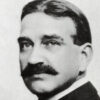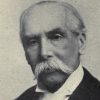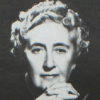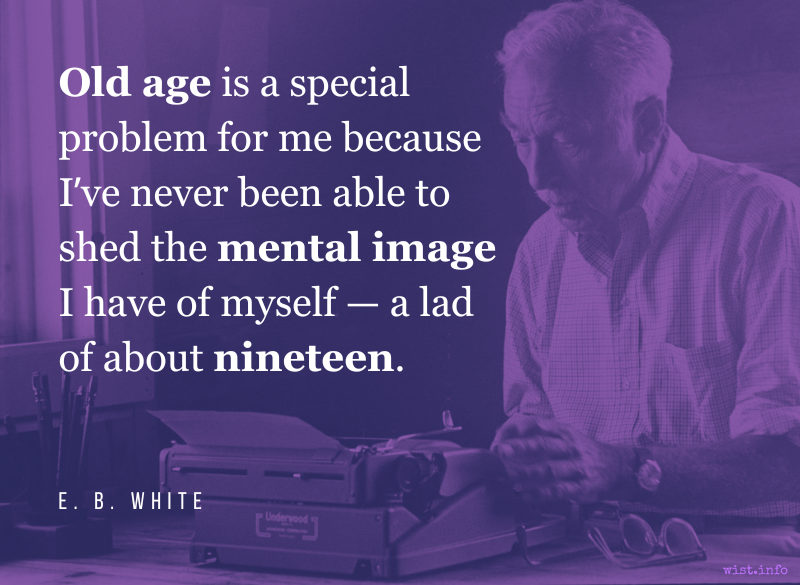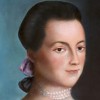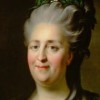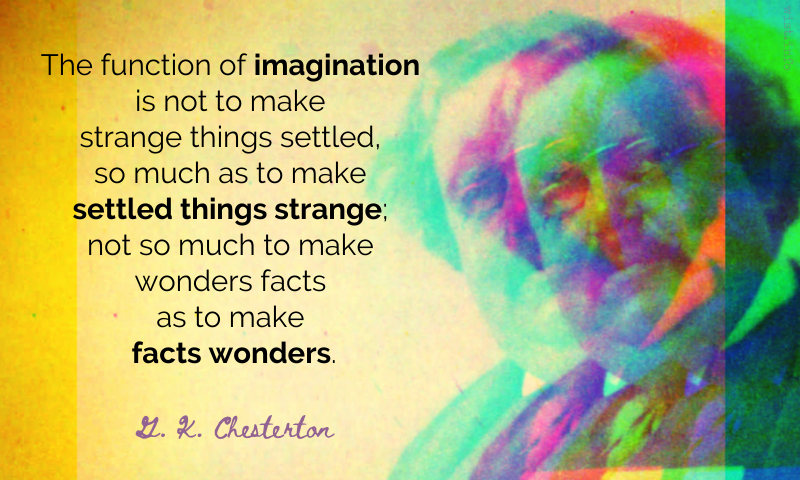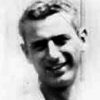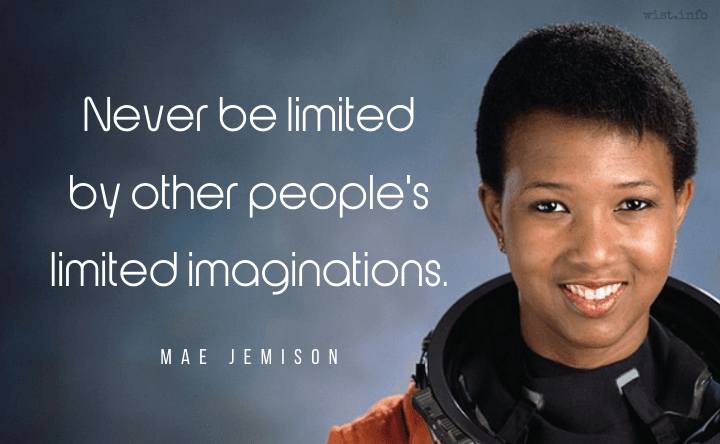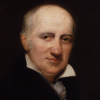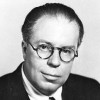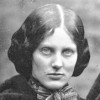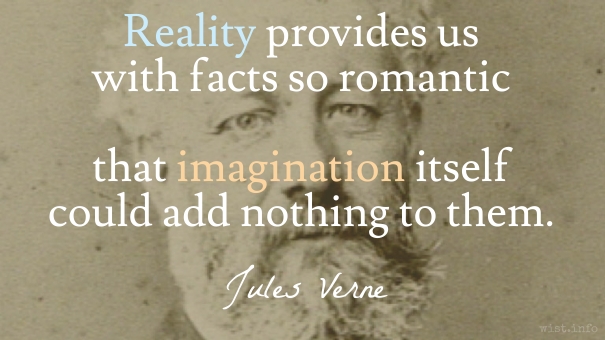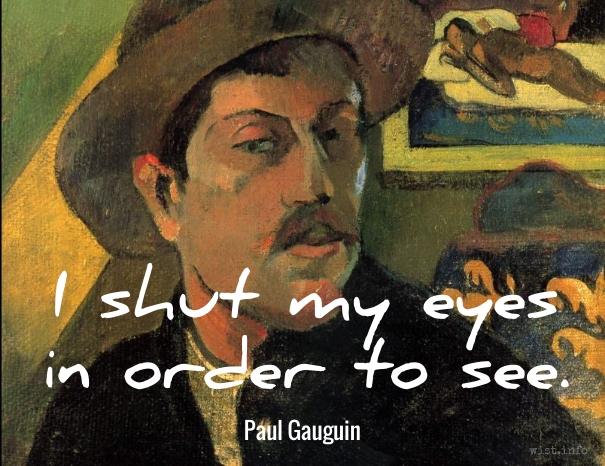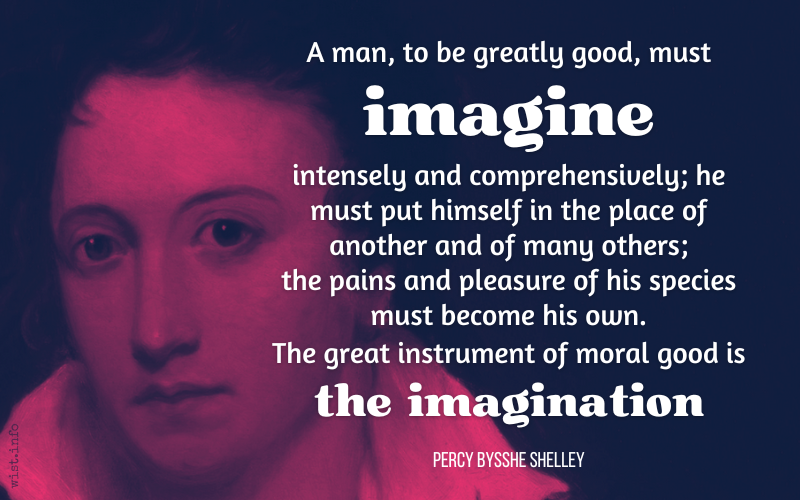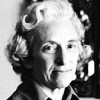All human accomplishment has the same origin, identically. Imagination is a force of nature. Is this not enough to make a person full of ecstasy? Imagination, imagination, imagination. It converts to actual. It sustains, it alters, it redeems!
Saul Bellow (1915-2005) Canadian-American writer
Henderson the Rain King, ch. 18 [King Dahfu] (1959)
(Source)
Quotations about:
imagination
Note not all quotations have been tagged, so Search may find additional quotes on this topic.
Some of my youthful readers are developing wonderful imaginations. This pleases me. Imagination has brought mankind through the Dark Ages to its present state of civilization. Imagination led Columbus to discover America. Imagination led Franklin to discover electricity. Imagination has given us the steam engine, the telephone, the talking-machine, and the automobile, for these things had to be dreamed of before they became realities. So I believe that dreams — day dreams, you know, with your eyes wide open and your brain machinery whizzing — are likely to lead to the betterment of the world. The imaginative child will become the imaginative man or woman most apt to create, to invent, and therefore to foster civilization. A prominent educator tells me that fairy tales are of untold value in developing imagination in the young. I believe it.
L. Frank Baum (1856-1919) American author [Lyman Frank Baum]
The Lost Princess of Oz, Introduction (1917)
(Source)
A little knowledge is said to be a dangerous thing, but it is not dangerous to the imagination. Knowledge is to the imagination what fuel is to flame. A little feeds it; a great deal extinguishes it.
Imagination is a good servant, and a bad master.
Agatha Christie (1890-1976) English writer
The Mysterious Affair at Styles, ch. 5 [Poirot] (1916, pub. 1920)
(Source)
Poirot, chiding Hastings' unfounded speculations.
To fight a real sorrow, a real loss, a real insult, a real disillusion, a real treachery was infinitely less difficult than to spend a night without sleep struggling with ghosts. The imagination is far better at inventing tortures than life because the imagination is a demon within us and it knows where to strike, where it hurts.
The gift of imagination is by no means an exclusive property of the artist; it is a gift we all share; to some degree or other all of us, all of you, are endowed with the powers of fantasy.
Leonard Bernstein (1918-1990) American conductor, composer, author, music lecturer, pianist
Commencement Speech, Johns Hopkins University (1980-05-30)
(Source)
Collected in Findings: Fifty Years of Meditations on Music, Part 4 (1982).
Old age is a special problem for me because I’ve never been able to shed the mental image I have of myself — a lad of about nineteen.
E. B. White (1899-1985) American author, critic, humorist [Elwyn Brooks White]
“E. B. White: Notes and Comment by Author,” interview by Israel Shenker, New York Times (1969-07-11)
(Source)
On his 70th birthday.
Didn’t Woody Allen say that all literature was a footnote to Faust? Perhaps all adolescence is a dialogue between Faust and Christ. We tremble on the brink of selling that part of ourselves that is real, unique, angry, defiant and whole for the rewards of attainment, achievement, success and the golden prizes of integration and acceptance; but we also in our great creating imagination, rehearse the sacrifice we will make: the pain and terror we will take from others’ shoulders; our penetration into the lives and souls of our fellows; our submission to willingness to be rejected and despised for the sake of truth and love and, in the wilderness, our angry rebuttals of the hypocrisy, deception and compromise of a world which we see to be so false. There is nothing so self-righteous nor so right as an adolescent imagination.
Stephen Fry (b. 1957) British actor, writer, comedian
Moab Is My Washpot, “Falling In,” ch. 6 (1997)
(Source)
Imaginary evil is romantic and varied; real evil is gloomy, monotonous, barren, boring. Imaginary good is boring; real good is always new, marvelous, intoxicating.
Simone Weil (1909-1943) French philosopher
Gravity and Grace [La Pesanteur et la Grâce], “Evil” (1947) [ed. Thibon] [tr. Crawford/von der Ruhr (1952)]
(Source)
Speaking of the portrayal of good and evil in literature.
The suggestion that the world could be completely other than it is always annoys those who are content with the way things are. Stories of imagination tend to upset those without one. Rulers are suspicious of new worlds where their writ does not run. Jailers don’t like escapism.
Terry Pratchett (1948-2015) English author
Foreword to David Pringle, ed., The Ultimate Encyclopedia of Fantasy (1999)
(Source)
Often just given as "Stories of imagination tend to upset those without one."
Although our intellect always feels itself urged towards clearness and certainty, still our mind often feels itself attracted by uncertainty. Instead of threading its way with the understanding along the narrow path of philosophical investigations and logical conclusions, in order almost unconscious of itself, to arrive in spaces where it feels itself a stranger, and where it seems to part from all well known objects, it prefers to remain with the imagination in the realms of chance and luck.
[Obgleich sich unser Verstand immer zur Klarheit und Gewißheit hingedrängt fühlt, so fühlt sich doch unser Geist oft von der Ungewißheit angezogen. Statt sich mit dem Verstande auf dem engen Pfade philosophischer Untersuchung und logischer Schlußfolgen durchzuwinden, um, seiner selbst sich kaum bewußt, in Räumen anzukommen, wo er sich fremd fühlt, und wo ihn alle bekannten Gegenstände zu verlassen scheinen, weilt er lieber mit der Einbildungskraft im Reiche der Zufälle und des Glücks.]
Karl von Clausewitz (1780-1831) Prussian soldier, historian, military theorist
On War [Vom Kriege], Book 1, ch. 1 “What Is War? [Was ist der Krieg?],” § 22 (1.1.22) (1832) [tr. Graham (1873)]
(Source)
(Source (German)). Alternate translations:
Although our intellect always feels itself urged toward clarity and certainty, our mind still often feels itself attracted by uncertainty. Instead of threading its way with the intellect along the narrow path of philosophical investigation and logical deduction, in order almost unconsciously, to arrive in spaces where it finds itself a stranger and where all familiar objects seem to abandon it, it prefers to linger with imagination in the realms of chance and luck.
[tr. Jolles (1943)]
Although our intellect always longs for clarity and certainty, our nature often finds uncertainty fascinating. It prefers to day-dream in the realms of chance and luck rather than accompany the intellect on its narrow and tortuous path of philosophical enquiry and logical deduction only to arrive -- hardly knowing how -- in unfamiliar surroundings where all the usual landmarks seem to have disappeared.
[tr. Howard & Paret (1976)]
Try to remember this: what you project
Is what you will perceive; what you perceive
With any passion, be it love or terror,
May take on whims and powers of its own.
Few people can say of themselves that they are free of the belief that this world which they see around them is in reality the work of their own imagination. Are we pleased with it, proud of it, then?
Isak Dinesen (1885-1962) Danish writer [pseud. of Karen Christence, Countess Blixen]
“The Deluge at Norderney,” Seven Gothic Tales [Kasparson] (1934)
(Source)
A nation that silences or intimidates original minds is left only with unoriginal minds and cannot hope to hold its own in the competition of peace or of war.
Henry Steele Commager (1902-1998) American historian, writer, activist
“Free Enterprise in Ideas,” Freedom, Loyalty, Dissent (1954)
(Source)
Originally published in the Saturday Review (1952), based on a speech to the Advertising Council's American Round Table, New York City (1951).
Many of our disappointments and much of our unhappiness arise from our forming false notions of things and persons. We strangely impose upon ourselves; we create a fairyland of happiness. Fancy is fruitful and promises fair, but, like the dog in the fable, we catch at a shadow, and when we find the disappointment, we are vexed, not with ourselves, who are really the imposters, but with the poor, innocent thing or person of whom we have formed such strange ideas.
Abigail Adams (1744-1818) American correspondent, First Lady (1797-1801)
Letter to Hannah Lincoln (5 Oct 1761)
(Source)
A great wind is blowing, and that gives you either imagination or a headache.
Catherine II (1762-1796) Russian empress [Catherine the Great; b. Sophie of Anhalt-Zerbst]
Letter to Baron Friedrich von Grimm (29 Apr 1775)
(Source)
In the Collections of the Imperial Society of Russian History, Vol. 23, Catherine the Great, Letters to Grimm, quoted in Gamaliel Bradford, Daughters of Eve (1930).
The function of imagination is not to make strange things settled, so much as to make settled things strange; not so much to make wonders facts as to make facts wonders.
Gilbert Keith Chesterton (1874-1936) English journalist and writer
The Defendant, ch. 7 “A Defence of China Shepherdesses” (1901)
(Source)
Like common law, the moral imagination works by precedent and example. We are all equipped with an inherited archive of historical events that serves as the background for everything that occurs. Especially when we are confronted with new events that test the limits of moral comprehension, we call upon what is most familiar in historical memory to regain our sense of moral orientation. We require this archive not only for political judgment, but as the necessary horizon for human experience.
Peter E, Gordon (b. 1966) American intellectual historian
“Why Historical Analogy Matters,” New York Review of Books (7 Jan 2020)
(Source)
To think yourself incapable of crime is one failure of the imagination. To think yourself capable of all crimes is another.
James Richardson (b. 1950) American poet
Vectors: Aphorisms and Ten-Second Essays, #122 (2001)
(Source)
Illusion is the first of all pleasures.
[L’illusion est le premier plaisir.]
Voltaire (1694-1778) French writer [pseud. of Francois-Marie Arouet]
The Maid of Orleans [La Pucelle d’Orléans] (1756 ed.)
(Source)
Sometimes misattributed to Oscar Wilde. This is part of a canto added from another Voltaire piece, probably by a publisher, to the end of the 1756 edition of Voltaire's poem, as noted in the "Additional Notes" included with 19th Century editions of the work. It reads in part:
O gift from heaven! tender love! sweet desire!
We are still happy with your image:
Illusion is the first of all pleasures.
[O don du ciel! tendre amour! doux désir!
On est encore heureux par votre image;
L'illusion est le premier plaisir.]
The canto was not included the Voltaire-authorized 1762 edition. The English translation of the quoted line goes back at least to 1881.
More information: Illusion.
I have no use for people who have learned the limits of the possible.
The highest exercise of imagination is not to devise what has no existence, but rather to perceive what really exists, though unseen by the outward eye, — not creation, but insight.
Combining rational intelligence with all the imagination we can command, let us project ourselves forcefully into the future. In doing so, let us not fear occasional error — the imagination is only free when fear of error is temporarily laid aside. Moreover, in thinking about the future, it is better to err on the side of daring, than the side of caution.
Imagination continually frustrates tradition; that is its function.
John Pfeiffer (1914-1999) American anthropologist, author
“Nature, the Radical Conservative,” New York Times (29 Apr 1979)
(Source)
Book review of Gregory Bateson, Mind and Nature. This quotation is frequently misattributed to Jules Feiffer.
No disease of the imagination is so difficult to cure, as that which is complicated with the dread of guilt: fancy and conscience then act interchangeably upon us, and so often shift their places, that the illusions of one are not distinguished from the dictates of the other.
Samuel Johnson (1709-1784) English writer, lexicographer, critic
The History of Rasselas, Prince of Abissinia, ch. 46 (1759)
(Source)
Sometimes attributed to E. M. Forster, as he transcribed the words in his Commonplace Book.
His imagination resembled the wings of an ostrich. It enabled him to run, though not to soar. When he attempted the highest flights, he became ridiculous; but, while he remained in a lower region, he outstripped all competitors.
Thomas Babington Macaulay (1800-1859) English writer and politician
“John Dryden,” Edinburgh Review (Jan 1828)
(Source)
Review of John Dryden, The Political Works of John Dryden (1826)
Never be limited by other people’s limited imaginations. There were people who said, “You can’t go into space. You can’t go to the moon.” If you adopt their attitudes, then the possibility won’t exist because you’ll have already shut it out. Yes, you can hear other people’s wisdom, but you’ve got to re-evaluate the world for yourself.
Mae Jemison (b. 1956) American engineer, physician, astronaut
Interview, Chicago Sun-Times (May 1994)
(Source)
As the true object of education is not to render the pupil the mere copy of his preceptor, it is rather to be rejoiced in, than lamented, that various reading should lead him into new trains of thinking.
William Godwin (1756-1836) English journalist, political philosopher, novelist
The Enquirer, Essay 15 “Of Choice in Reading” (1797)
(Source)
Ever since I had dinner with Lou Reed I’ve tried to avoid meeting the people who would make me feel starstruck. It was a great dinner but by the end of it Lou Reed was no longer my hero, and I don’t have many heroes. I resolutely avoided meeting David Bowie, which became harder when I became friends with Duncan Jones, his son, and then got even harder when I moved to Woodstock and he lived around the corner. But I love the fact that the Bowie that I have is the Bowie in my head: a strange, evolving, absolutely fictional Bowie who became my hero when I was 11.
Neil Gaiman (b. 1960) British author, screenwriter, fabulist
“This Much I Know,” The Guardian (2017-08-05)
(Source)
You unlock this door with the key of imagination. Beyond it is another dimension: a dimension of sound, a dimension of sight, a dimension of mind. You’re moving into a land of both shadow and substance, of things and ideas. You’ve just crossed over into — the Twilight Zone.
Rod Serling (1924-1975) American screenwriter, playwright, television producer, narrator
Twilight Zone, Introduction, Seasons 4-5 (1963-1964)
(Source)
When you sell a man a book you don’t sell him just twelve ounces of paper and ink and glue — you sell him a whole new life.
Christopher Morley (1890-1957) American journalist, novelist, essayist, poet
Parnassus on Wheels, ch. 4 (1917)
(Source)
You advise me, too, not to stray far from the ground of experience, as I become weak when I enter the region of fiction; and you say, “real experience is perennially interesting, and to all men.” I feel that this also is true; but, dear Sir, is not the real experience of each individual very limited? And, if a writer dwells upon that solely or principally, is he not in danger of repeating himself, and also of becoming an egotist? Then, too, imagination is a strong, restless faculty, which claims to be heard and exercised: are we to be quite deaf to her cry, and insensate to her struggles? When she shows us bright pictures, are we never to look at them, and try to reproduce them? And when she is eloquent, and speaks rapidly and urgently in our ear, are we not to write to her dictation?
It must be added, lest we be reproached for leaving out details important to our readers’ understanding of subsequent events, that the lady seemed to have all the attributes of beauty, grace and charm that make a young man’s heart beat faster and cause his eyes to widen, lest they miss the least nuance of expression or gesture. It need hardly be added that Khaavren was just of the type to appreciate all of these qualities; that is to say, he was young and a man, and had, moreover, a vivid imagination which allowed his thoughts to penetrate, if not the mind of the lady opposite him, at least the folds and angles of her gown.
Now, I’m an atheist. I really don’t believe for a moment that our moral sense comes from a God. […] It’s human, universal, [it’s] being able to think our way into the minds of others. As I said at the time, what those holy fools clearly lacked, or clearly were able to deny themselves, was the ability to enter into the minds of the people they were being so cruel to. Amongst their crimes, is, was, a failure of the imagination, of the moral imagination.
There is no Frigate like a Book
To take us Lands away,
Nor any Coursers like a Page
Of prancing poetry.Emily Dickinson (1830-1886) American poet
“There is no Frigate like a Book,” ll. 1-4 (c. 1873)
(Source)
Indeed, if we consider the unblushing promises of reward and the staggering nature of the rewards promised in the Gospels, it would seem that Our Lord finds our desires not too strong, but too weak. We are half-hearted creatures, fooling about with drink and sex and ambition when infinite joy is offered us, like an ignorant child who wants to go on making mud pies in a slum because he cannot imagine what is meant by the offer of a holiday at the sea. We are far too easily pleased.
A man, to be greatly good, must imagine intensely and comprehensively; he must put himself in the place of another and of many others; the pains and pleasure of his species must become his own. The great instrument of moral good is the imagination; and poetry administers to the effect by acting upon the cause.
Whenever you look at a piece of work and you think the fellow was crazy, then you want to pay some attention to that. One of you is likely to be, and you had better find out which one it is. It makes an awful lot of difference.
Charles F. Kettering (1876-1958) American inventor, engineer, researcher, businessman
Comment (1930)
(Source)
As attributed by Francis Davis, inventor of power steering.
Fantasy is an exercise bicycle for the mind. It might not take you anywhere, but it tones up the muscles that can.
Terry Pratchett (1948-2015) English author
Interview in Leonard Marcus, The Wand in the World: Conversations with Writers of Fantasy (2006)
(Source)
This quotation is sometimes given with "But I may be wrong" as a following sentence, but that does not appear in the original.
If you have a good scientific imagination, you can think of all sorts of things that might be true, and that’s the essence of science. You first think of something that might be true — then you look to see if it is, and generally it isn’t.
Bertrand Russell (1872-1970) English mathematician and philosopher
Interview by Woodrow Wyatt, BBC TV (1959)
Collected in Bertrand Russell's BBC Interviews (1959) [UK] and Bertrand Russell Speaks His Mind (1960) [US].
The staircase that leads to God. What does it matter if it is make-believe, if we really climb it? What difference does it make who builds it, or if it is made of marble or word, of brick, stone, or mud? The essential thing is that it be solid and that in climbing it we feel the peace that is inaccessible to those who do not climb it.
Joseph Joubert (1754-1824) French moralist, philosopher, essayist, poet
Pensées [Thoughts], 1797 entry [tr. Auster (1983)]
(Source)
I could not find an analog in other translations of the Pensées.
He who has imagination without learning has wings and no feet.
[Celui qui a de l’imagination sans érudition, a des ailes et n’a pas de pieds.]
Joseph Joubert (1754-1824) French moralist, philosopher, essayist, poet
Pensées [Thoughts], ch. 4 “De la Nature des Esprits [On the Nature of Minds],” ¶ 39 (1850 ed.) [tr. Attwell (1896), ¶ 53]
(Source)
(Source (French)). Alternate translations:
The man of imagination without learning has wings and no feet.
[tr. Lyttelton (1899), ch. 3, ¶ 16]
The man of imagination who is unlearned has wings and no feet.
[tr. Collins (1928), ch. 4]
Considering history as a moral exercise, her lessons would be too unfrequent if confined to real life. Of those recorded by historians few incidents have been attended with such circumstances as to excite in any high degree this sympathetic emotion of virtue. We are therefore wisely framed to be as warmly interested for a fictitious as for a real personage. The spacious field of imagination is thus laid open to our use, and lessons may be formed to illustrate and carry home to the mind every moral rule of life. Thus a lively and lasting sense of filial duty is more effectually impressed on the mind of a son or daughter by reading King Lear, than by all the dry volumes of ethics and divinity that ever were written.
Thomas Jefferson (1743-1826) American political philosopher, polymath, statesman, US President (1801-09)
Letter to Robert Skipwith (3 Aug 1771)
(Source)
We are all tattoed in our cradles with the beliefs of our tribe; the record may seem superficial, but it is indelible. You cannot educate a man wholly out of the superstitious fears which were early implanted in his imagination; no matter how utterly his reason may reject them, he will still feel as the famous woman did about ghosts, Je ne crois pas, mais je les crains, — “I don’t believe in them, but I am afraid of them, nevertheless.”
A man without mirth is like a waggon without springs, in which one is caused disagreeably to jolt by every pebble over which it runs. A man with mirth is like a chariot with springs, in which one can ride over the roughest road, and scarcely feel anything but a pleasant rocking motion.
Henry Ward Beecher (1813-1887) American clergyman and orator
Royal Truths (1862)
(Source)
Frequently rendered, but unsourced in this form:
A person without a sense of humor is like a wagon without springs. It's jolted by every pebble on the road.
In Proverbs from Plymouth Pulpit, "The Human Mind" [ed. Drysdale (1887)], Beecher is recorded similarly saying:
A practical, matter-of-fact man is like a wagon without springs: every single pebble on the road jolts him; but a man with imagination has springs that break the jar and jolt.


